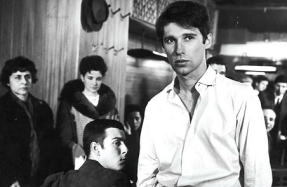
At the end of Kamal Aljafari’s latest film, An Unusual Summer, the Palestinian filmmaker recalls a memory from his childhood, centred on the communal garden outside of his home in the city of Ramlah, a 30-minute drive southeast of Tel Aviv:
As a child I spent summer
climbing the fig tree
filling straw baskets with green figs
big as apples
My sister was more courageous
than me
Our bodies itching from the fig leaves
My uncle Issa came back one day
I overheard that the Red Cross
allowed him to visit his mother
It was a hot summer
perhaps August
he spent every day in the garden
cleaning and digging
around the fig tree
Before he left he engraved my name
on the fig tree
Years later the bulldozers came
uprooted the garden and tree
Aljafari’s father Abedeljalil, who turned six during the Palestinian Nakba of 1948, was eventually forced to resettle in Ramlah, where Aljafari was born in 1972. The city is a site of urban decay, home to five prisons—including the maximum-security Ayalon Prison— and derisively referred to as “the ghetto” by Israelis due to its Arab population. Beginning in the early 2000s, Israel has attempted to “beautify” Ramlah, supporting developers in their efforts to spatially segregate Palestinian neighbourhoods and push them out of sight. Palestinian sociologist Elia Zureik has described how this process is essential to the Israeli project: Israel’s systematic theft of Palestinian homes and lands hinges not only on the racialization






